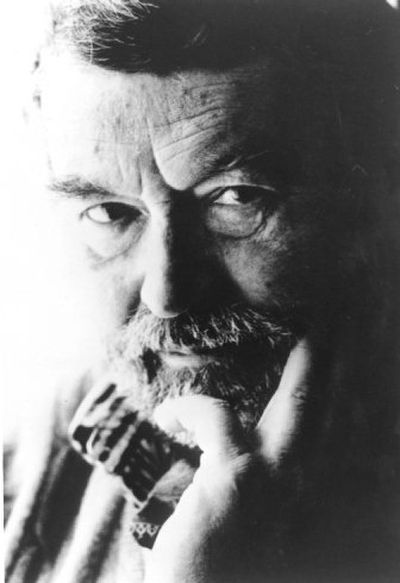Author John Fowles, 79, dies at home in England

John Fowles, the cerebral British novelist whose restless exploration of literary form and thematic fascination with free will brought him immense critical and commercial affirmation in works such as “The French Lieutenant’s Woman” and “The Magus,” died Saturday at his home in the southwest English town of Lyme Regis, Dorset. He was 79.
His publisher, Random House, told the Associated Press on Monday that Fowles died of an undisclosed illness. He had been in poor health since a stroke in 1988 and had heart problems.
A reclusive man who said his novels often originated in a recurring image or a dream, Fowles rejected what he once called the “cage labeled ‘novelist,’ ” preferring to stretch the borders of literary convention in each work.
He did this most famously in “The French Lieutenant’s Woman,” the haunting Victorian love story, published in 1969 and made into an Oscar-nominated movie, that Fowles supplied with two endings.
But innovation was an early hallmark of his work. His first novel, “The Collector,” published in 1963, offers two versions of a ghastly event – the kidnapping and imprisonment of an upper-class art student by a lower-class clerk – one told by Fred Clegg, the kidnapper, and the other by Miranda, his 20-year-old captive. “The Magus,” a 1966 novel about a rich man who imposes a series of strange fantasies or “godgames” on a young English schoolmaster, ends ambiguously, leaving the reader to grapple with the book’s meaning. Both novels also were made into films.
“I don’t think any art or science can describe the whole reality of nature,” Fowles told an interviewer in 1985. “I often feel this in writing fiction – that one is trying to describe what one can’t and ought not even to be trying; and is so condemned to a sort of vulgar futility, or eternal second best.”
The scholarly view tended to be far more generous. Fowles “remains one of the least predictable and most re-readable of major modern authors,” according to his citation in the Concise Dictionary of British Literary Biography.
The best-selling author was more celebrated in America than in England, which may explain why he often described himself as living in exile in his own country. Once his books sold well enough for him to quit his teaching job, he bought an 18th-century house in Lyme Regis and had “very little social contact with anybody” except his wife and muse, Elizabeth.
Novelists, he told Margaret Reynolds and Jonathan Noakes in their critical study “John Fowles, The Essential Guide,” “have to live in some sort of exile. I also believe that … they have to keep in touch with their native culture, linguistically, psychologically, and in many other ways. If it sounds paradoxical, it feels paradoxical.”
His wife of 33 years, Elizabeth, died one week after being diagnosed with pancreatic cancer in 1990. He is survived by his second wife, Sarah.